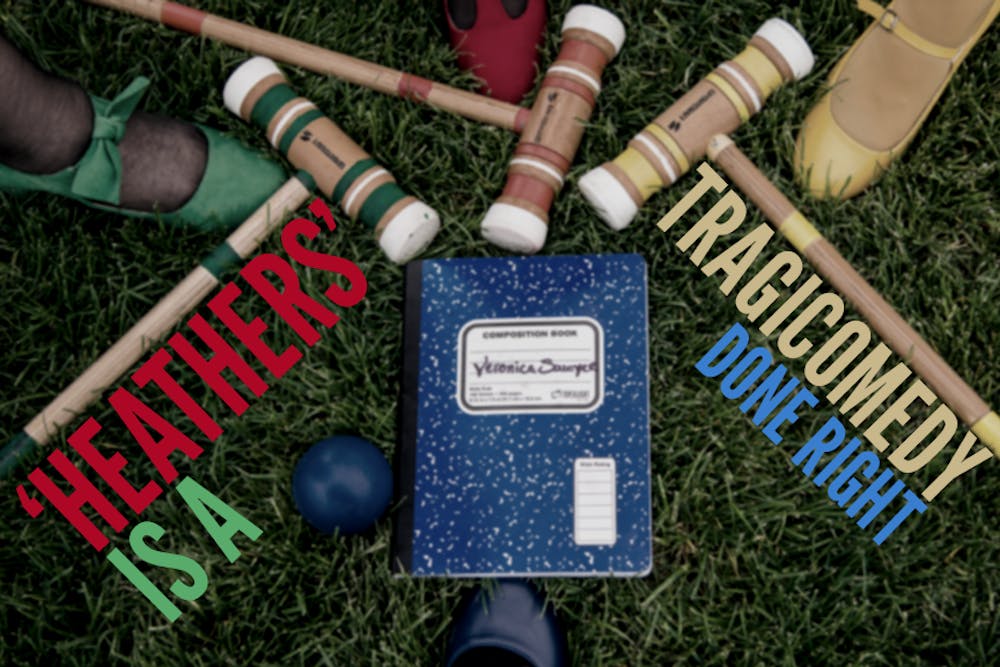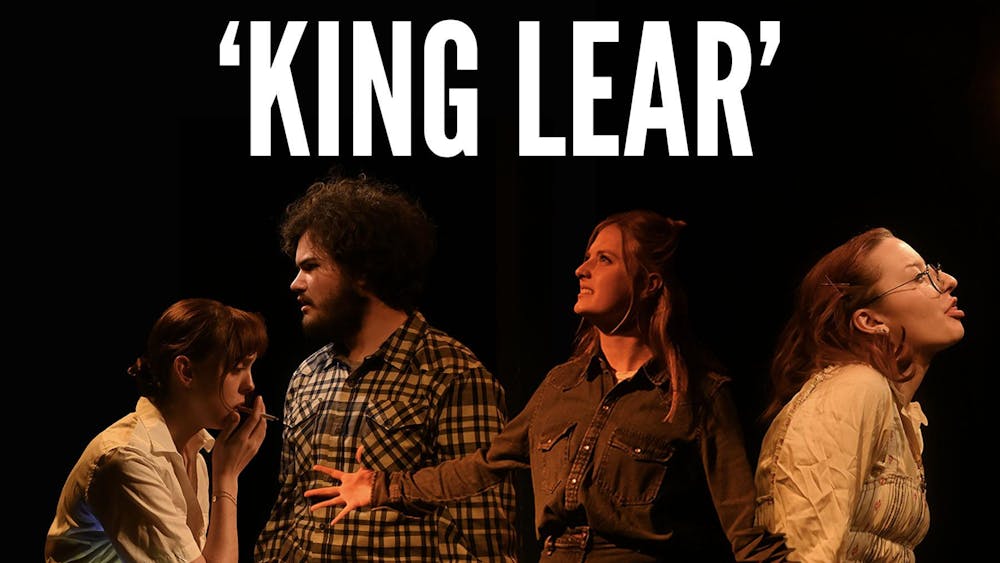This Thursday I was delighted to see Notre Dame’s Pasquerilla East Musical Company (PEMCo) take on “Heathers.” It’s a musical about Westerburg High, centering around protagonist Veronica as she ventures through the murky waters of high school boys and mean girls. Eventually, the show takes a sharp turn when Veronica meets and begins to date JD, who leads her down a dark trail and murders the people who hurt Veronica — starting with the ringleader of the bullies, Heather Chandler.
As someone who hadn’t previously seen “Heathers,” the cast did an excellent job of grappling with its heavy themes — with eating disorders, depression and suicide, for instance. Not only was the plot excellently portrayed, I greatly enjoyed the music, especially the songs “Dead Girl Walking”, “Seventeen” and “Big Fun.” The music was so great, in fact, that I found myself humming it on my way out the theater door and incorporating some of the songs into my playlist. The lyrics were witty and sharp, while accompanied by groovy, upbeat melodies. For instance, “Dead Girl Walking” has a different meaning when it’s first played versus when it’s later reprised, and thus the music changes the audience’s emotions and attitudes toward the song. At first, the song sounds like a schoolgirl simply being intimidated by a bully, but it develops a deeper meaning as the murders go on. Additionally, the song signifies the start of Veronica and JD’s relationship, and JD is the impetus for the murders, which was the start of Veronica’s deeper feeling of being a “dead girl walking.”
In a different piece, “Seventeen,” both the male and female leads excelled in their roles. They both had great chemistry throughout the play, but it was especially clear in this duet. The music was powerful and aided the transitions between different intense themes — plot twists and humor, meanwhile, weaved in between.
The dancing also contributed to the emotion of the songs. For instance, in “My Dead Gay Son,” the eye contact — as well as the eventual hand-holding and hugging — between the two fathers, who appeared to be straight at first, added lots of humor to a very serious situation and made the mature themes easier for the audience to digest. As a viewer, I didn’t feel that the wit and humor of the play overshadowed these serious topics which got their well-deserved recognition.
Not only was the music superb, the acting was even better. The cast handled tough themes well and were so committed to their characters that the emotions were remarkably believable to the audience — I felt like I was a student at Westerburg looking on as the scenes unfolded. A blend of comedy and tragedy keeps audiences engaged and entertained while tackling difficult subjects. As a result, I felt empathy and sympathy for the characters, which is impressive, because every character in the play is so flawed. The directors added to this effect by emphasizing the comic relief in serious moments. For instance, when Veronica shoots JD, and he says “Is this good for you, because it sucks for me?” it added extra humor to a serious moment of the play where Veronica returned to the moral status she began from.










